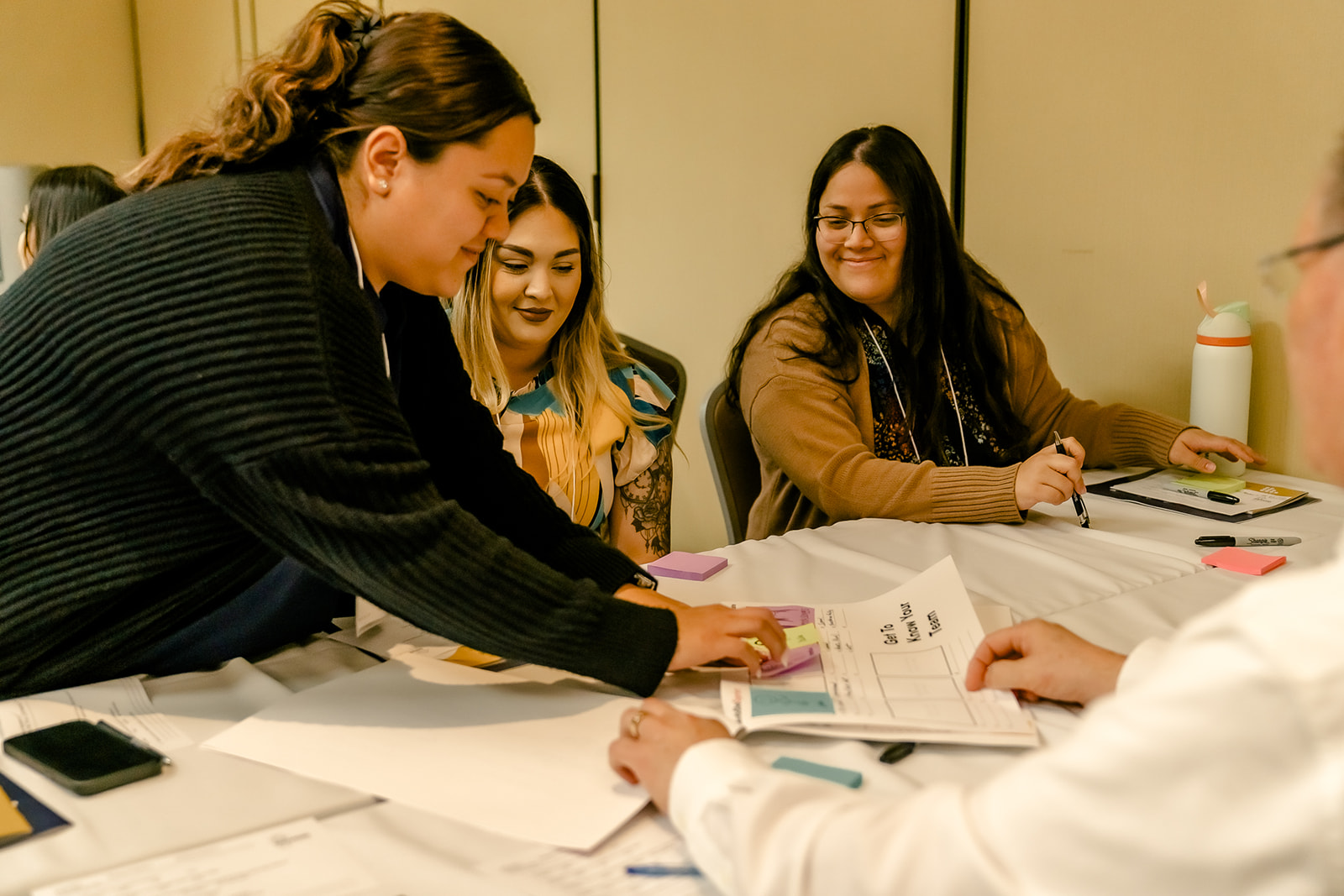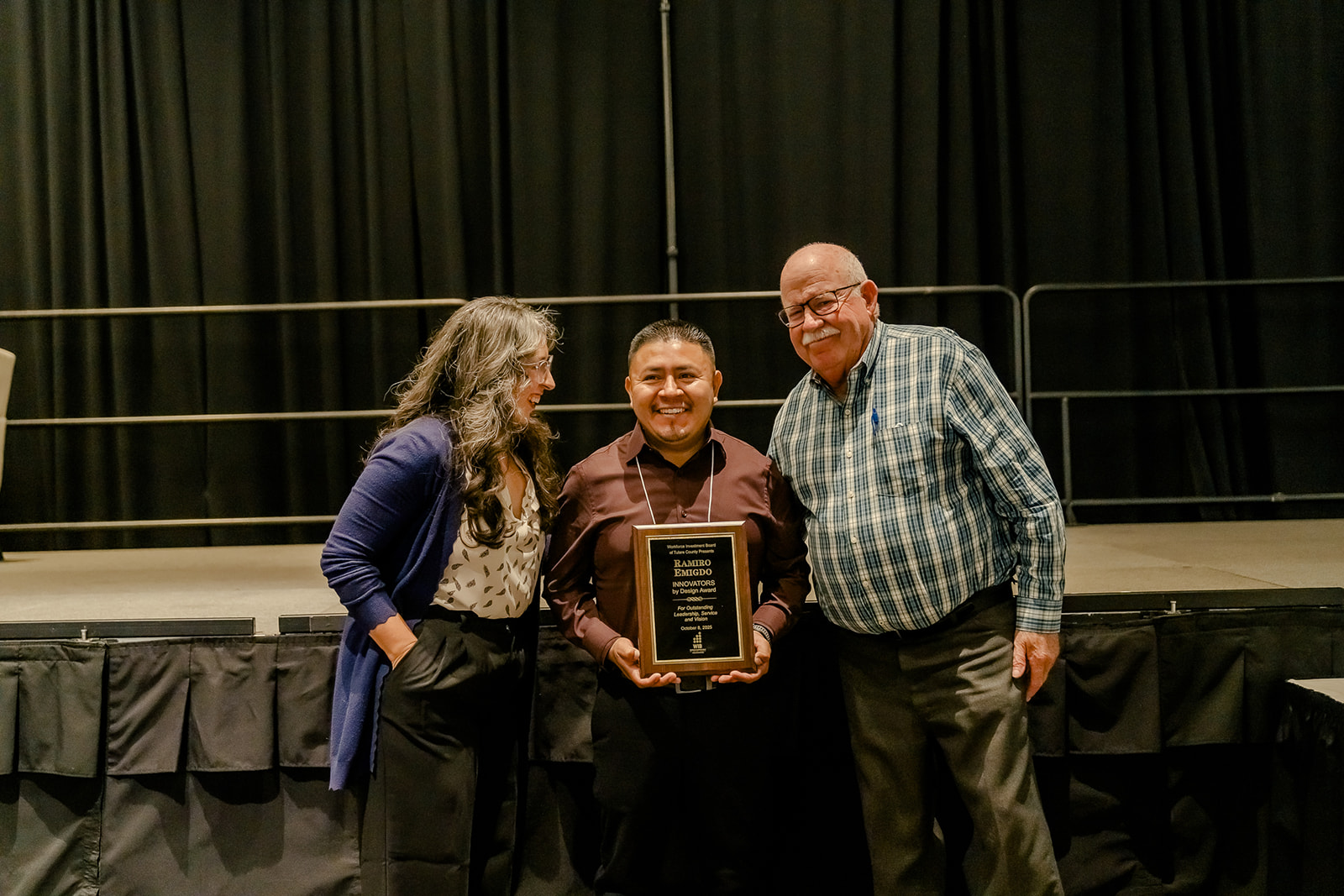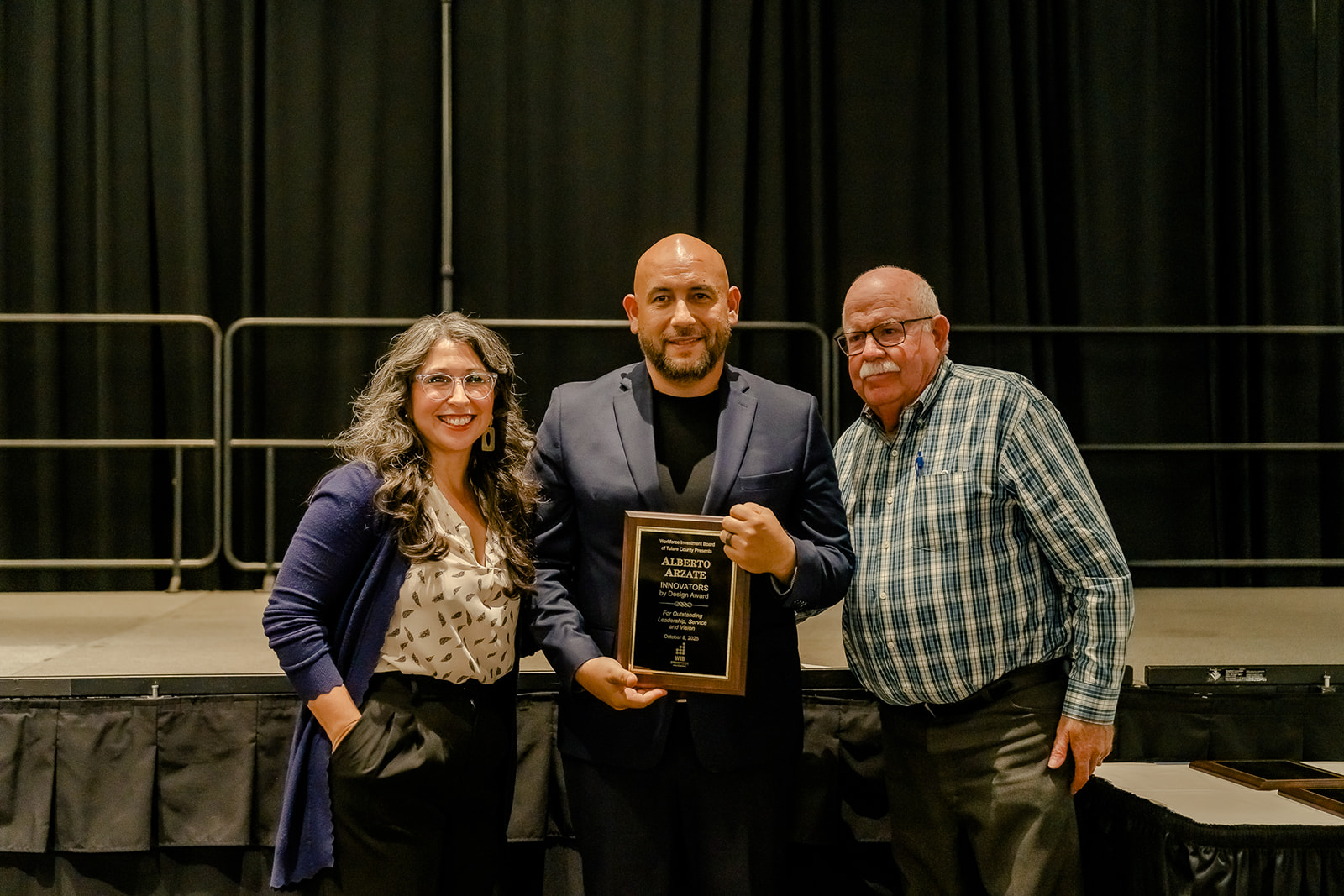
Teaching Human-Centered Design at Innovators by Design
Recapping our hands-on design sprint at Innovators by Design and exploring how Middlestate uses HCD

Recently, we had the opportunity to present at the Innovators by Design conference, a standout event convened by the Workforce Investment Board of Tulare County in Visalia. The conference brings together professionals from workforce development, education, and intermediary organizations to exchange ideas, spotlight success stories, and explore fresh strategies for aligning career pathways, business‑engagement services, and evolving program delivery.
Our session, “Innovating with Compassion: Using Creative Frameworks to Serve Your Community and Drive Change,” wasn’t your typical sit-and-listen presentation. Instead, we invited participants into a fast-paced, collaborative design sprint—an experiential dive into the heart of human-centered design.
Participants formed small teams and moved through a compressed version of our five-phase process: Discover, Define, Design, Refine, and Implement. The challenge? Interview someone they didn’t know, uncover a real-world frustration or opportunity in their community or organization, and then ideate and prototype a solution—all in under an hour.
What emerged was powerful. Some folks designed new approaches to engage youth in workforce programs. Others tackled internal communication gaps in their organizations. Every solution was grounded in empathy, driven by active listening, and shaped by the lived experience of someone sitting across from them.

What did participants walk away with?
- A real-time experience of listening deeply and designing for someone else’s actual needs—not assumptions.
- A set of creative tools they could bring back to their own organizations immediately.
- A sense of momentum, hope, and curiosity about what’s possible when we slow down and co-create with intention.
- Most importantly, a mindset shift—from “How do I fix this?” to “What matters most to the person I’m trying to serve?”
Want to try this at your workplace?
Download our MiddleSprint workshop kit huddle your team to try out this fun and interacticve design activity.
> MiddleSprint Facilitators Guide and Activity
Why This Matters to Middlestate
At Middlestate, this way of working isn’t just a workshop activity—it’s the foundation of how we support transformation across systems. Whether we’re sitting with farmworkers in Earlimart, hosting co-design focus groups in Goshen, or building toolkits for career coaches in Porterville, we use this human-centered approach to surface insights that bureaucracies often overlook.
Through projects with the Workforce Investment Board of Tulare County, we’ve seen firsthand how co-design can reshape not just what services are offered, but how they are delivered. By listening closely to rural communities and acting on what we hear, we help workforce systems reimagine processes, outreach strategies, and service delivery models that are rooted in trust, dignity, and real human need.
This workshop was a window into that philosophy—and a reminder that real innovation doesn’t begin with technology, funding, or policy. It begins with people.


Other Highlights from Innovators
One special moment was seeing Alberto Arzate and Ramiro Emigdio receive the Workforce Professional of the Year awards. Having worked with both of them, I can say they truly embody compassion and thoughtful leadership in the workforce space. They’re exactly the kind of leaders who are driving meaningful change in our communities, and it was a delight to see them recognized.
We also had an inspiring keynote by Jean Twenge, whose new book "Generations" (which I recently read) delves into the impact of technology on young people. She connected those themes to how the workforce and education landscapes are evolving. It was a great reminder of the importance of fostering not just technical skills, but also social courage and empathy in our young people.


